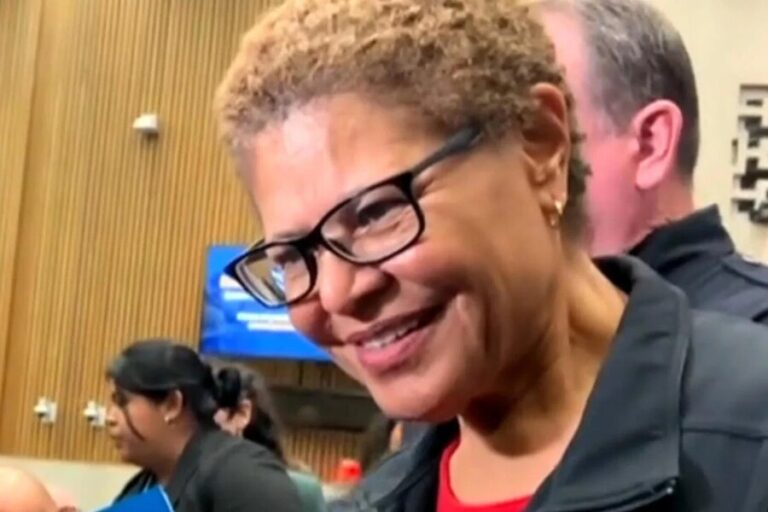Los Angeles Mayor Karen Bass is facing sharp criticism for her decision to travel to Ghana as the Palisades Fire broke out, destroying over 1,000 structures and forcing tens of thousands of residents to evacuate. The timeline of her trip and her delayed return have raised questions about her leadership during one of the city’s most severe crises.
Bass left Los Angeles on January 4 to attend the inauguration of Ghana’s president. The trip came just a day after the National Weather Service issued a fire weather watch, warning of dangerous conditions caused by Santa Ana winds. By the time Bass landed in Ghana on January 5, the warnings had escalated to a red flag warning, indicating extreme fire risks.
On January 6, the situation worsened, and the National Weather Service issued its highest alert—a “particularly dangerous situation.” Despite these escalating warnings, Bass posted her first public statement about the fires that evening. Critics noted that the information she shared was already outdated by several hours.
The Palisades Fire broke out on January 7 at 10:30 a.m. Pacific Time. At that time, Bass was attending the Ghanaian inauguration ceremony. Social media photos later showed her at a reception hosted by the U.S. ambassador to Ghana, more than an hour after the fire began. Her spokesperson said the mayor briefly stopped at the reception on her way to the airport.
Flight data confirmed Bass left Ghana at 1:08 p.m. Pacific Time on a military flight, landing at Andrews Air Force Base in Maryland in the early hours of January 8. From there, she traveled to Dulles International Airport and boarded a commercial flight to Los Angeles. By the time she landed at LAX at 11 a.m., the fire had already burned through neighborhoods, leaving 70,000 residents under evacuation orders.
At a press conference, Bass defended her actions, saying she coordinated with city officials throughout her travel and returned as quickly as possible. However, she admitted that, in hindsight, she would not have taken the trip. “No,” she said when asked directly if she would make the same decision again.
The timing of Bass’s trip has sparked backlash from residents and local officials. Critics argue that her absence during the critical early hours of the fire response hindered the city’s ability to manage the crisis effectively. Her initial social media post, sharing outdated fire information, further fueled frustration.
Bass emphasized that she worked closely with city officials while traveling and that she took the “fastest route back” to Los Angeles. However, this explanation did little to ease concerns about her priorities during a city-wide emergency.
This controversy comes as Bass wraps up her first year as mayor, facing challenges like homelessness, public safety, and now, her handling of natural disasters. Her decision to attend an international event during a high-risk period has led many to question how local leadership should balance global responsibilities with immediate crises.
As Los Angeles moves forward, Bass has pledged to improve emergency response measures and learn from this experience. However, the criticism surrounding her Ghana trip remains a reminder of the scrutiny public officials face when managing both local and international responsibilities.
